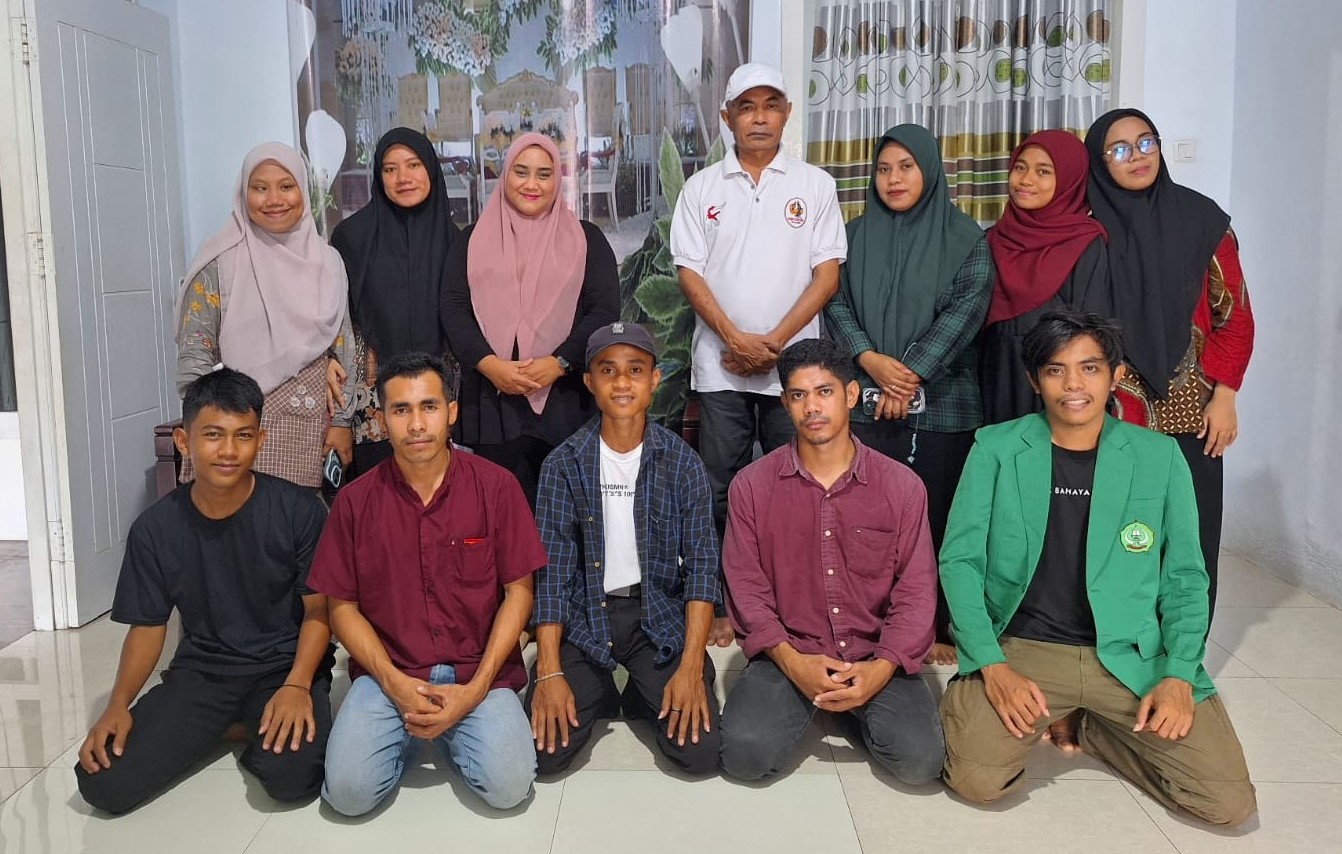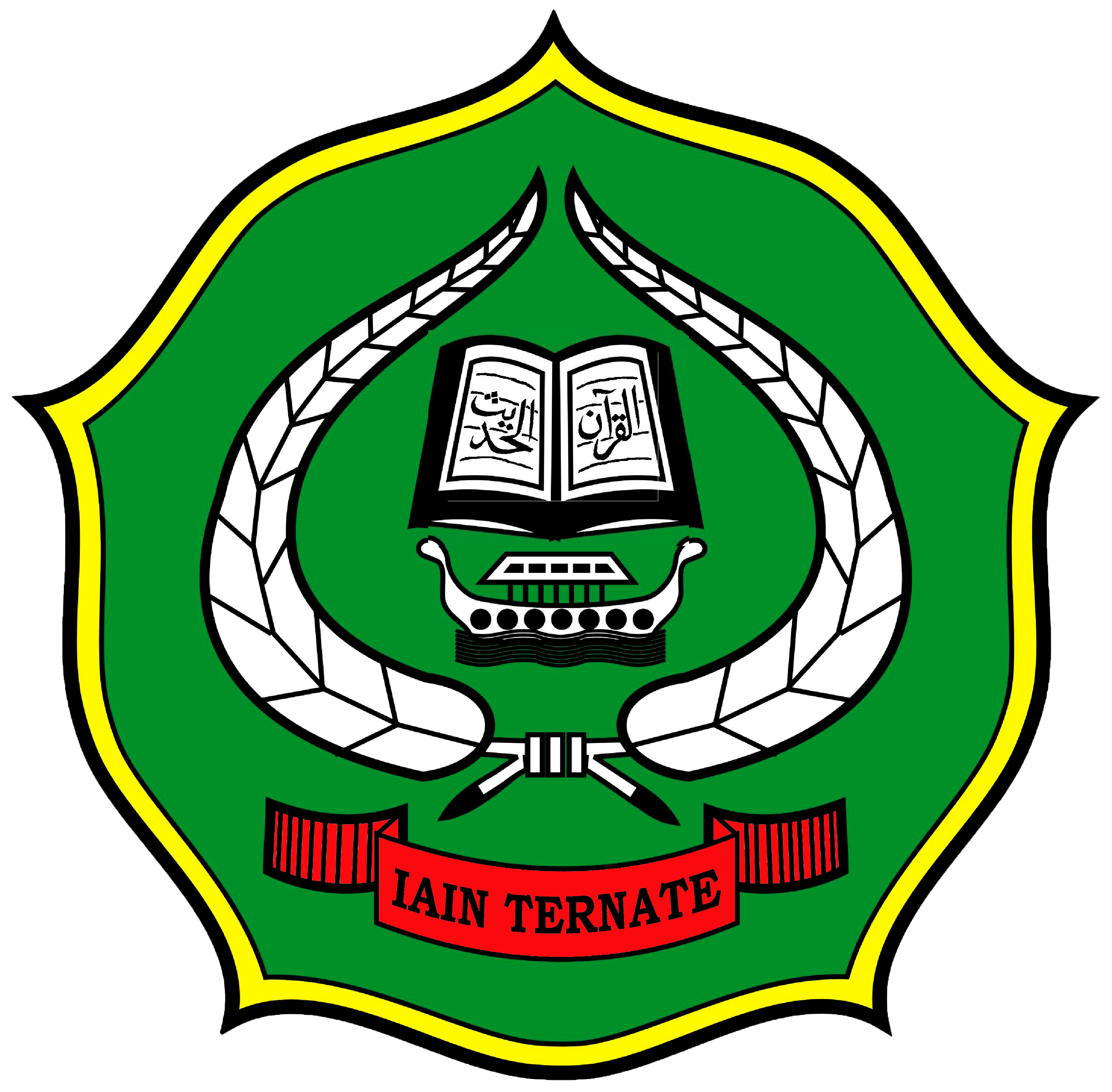
Reflecting on the Youth Pledge, FUAD IAIN Ternate Students Hold a Discussion entitled Youth 1928 and Youth 2024
TERNATE – In order to reflect on the youth oath day on 28 October 2024, the student association of the History of Islamic Civilization study program (HMPS-SPI) of the Ushuluddin Adab and Da'wah Faculty (FUAD) IAIN Ternate, North Maluku, held a youth oath discussion, Sunday (27/10/ 2024).
The activity with the theme of youth in 1928 and youth in 2024, it rained, so the discussion activity which was originally scheduled at the Toloko fort in Ternate, was then moved to the private residence of lecturer on the history of Islamic civilization (SPI) FUAD IAIN Ternate, Usman Nomay, S.Ag. , M.Pd.
The youth oath discussion took place at exactly 16.00 WIT, and was guided by RRI Ternate presenter Dessy Haryanti Ismail, while the speaker was SPI FUAD IAIN Ternate lecturer Usman Nomay, S.Ag., M.Pd.
In his presentation, he explained that students as the next generation of the nation must know the history of the birth of the Youth Pledge on 27-28 October 1928. Because by understanding history, students can practically take a role in carrying out activities to foster the unity and unity of the nation and state.
Apart from that, he continued, youth is not seen in terms of age, but rather has enthusiasm and is obsessed with doing positive things, to help the relevant government bring about changes in life for the progress of the nation and state.
According to him, the activity of reflecting on the Youth Pledge is important for students to carry out, because apart from increasing their knowledge and knowledge about the history of the 1928 youth, on the other hand, it reminds young people about the important role of youth in the progress of the nation and state.
"So even though his hair has turned white, but he has the enthusiasm to learn and carry out activities that help the government, contribute to the region, such as continuing to carry out educational activities about human values, the title of youth is still attached to him," he explained.
"If you understand the progress of youth in 1928, then as today's youth you are required to do something that is best for the nation and state, such as playing a role in maintaining unity to welcome a glorious future," he continued.
In the context of North Maluku, he continued, long before the birth of the Youth Pledge, the concept of unity and oneness had been initiated by leaders (sultans, ed) in the four sultanates, with the aim of keeping society living in peace and tranquility.
For this reason, he asked students of the history of Islamic civilization at IAIN Ternate to continue to focus on studying and exploring the history of the role of sultans in maintaining unity, then to imitate and follow their actions in maintaining the survival of society under the motto marimoi ngone futuru (united we are strong, ed).
"Apart from knowing the history of the birth of the Youth Pledge, young people in North Maluku must also know the actions of leaders in the four sultanates," he said
The HMI Ternate Branch alumnus also requested that students as the nation's future youth must continue to revive intellectual culture, so that they are always obsessed with helping the government in developing human resources (HR) in North Maluku.
Apart from that, he also reminded that in the political year, young people must avoid pragmatic, materialistic thinking. Because according to him, this way of thinking can damage the social order of society, which has the implication of eroding unity and unity.
"As young people, don't just think about the next five to ten years, but must think about the next fifty to one hundred years, that what we do today will have a positive impact on regional progress and be enjoyed by future generations," he advised.
"Think about everything in the context of safety and comfort in life in society, nation and state," he continued
Furthermore, he hopes that students as the young generation who live in an era of technological sophistication, must play a role in educating the public, so that society can avoid things that can break the unity and unity of the nation.
"The message of the Youth Pledge is that young people from all over the archipelago are united in one homeland, one nation, one homeland and one common language. "For this reason, things that can damage unity, such as negative sentiments related to ethnicity, religion, race or class, must be avoided, and the way to avoid this is to continue educating the public," he stressed.
"Young people who live in today's increasingly advanced digital era, what they have to do is continue to spread the spirit of the youth pledge. "Through social media platforms, we must convey messages related to the values contained in the youth oath," he added.
He added that youth, as the nation's next generation, must be ready to face challenges in order to achieve success. Because, according to him, being a strong young man is always faced with various challenges. Therefore, he continued, we must use challenges as valuable lessons to look forward to and achieve success in tomorrow.
"Never stop learning, because young people, as the next generation, are required to have the ability to think critically, develop creativity and be innovative, and not give up easily and keep trying to achieve their dreams," he concluded. (*)
The activity with the theme of youth in 1928 and youth in 2024, it rained, so the discussion activity which was originally scheduled at the Toloko fort in Ternate, was then moved to the private residence of lecturer on the history of Islamic civilization (SPI) FUAD IAIN Ternate, Usman Nomay, S.Ag. , M.Pd.
The youth oath discussion took place at exactly 16.00 WIT, and was guided by RRI Ternate presenter Dessy Haryanti Ismail, while the speaker was SPI FUAD IAIN Ternate lecturer Usman Nomay, S.Ag., M.Pd.
In his presentation, he explained that students as the next generation of the nation must know the history of the birth of the Youth Pledge on 27-28 October 1928. Because by understanding history, students can practically take a role in carrying out activities to foster the unity and unity of the nation and state.
Apart from that, he continued, youth is not seen in terms of age, but rather has enthusiasm and is obsessed with doing positive things, to help the relevant government bring about changes in life for the progress of the nation and state.
According to him, the activity of reflecting on the Youth Pledge is important for students to carry out, because apart from increasing their knowledge and knowledge about the history of the 1928 youth, on the other hand, it reminds young people about the important role of youth in the progress of the nation and state.
"So even though his hair has turned white, but he has the enthusiasm to learn and carry out activities that help the government, contribute to the region, such as continuing to carry out educational activities about human values, the title of youth is still attached to him," he explained.
"If you understand the progress of youth in 1928, then as today's youth you are required to do something that is best for the nation and state, such as playing a role in maintaining unity to welcome a glorious future," he continued.
In the context of North Maluku, he continued, long before the birth of the Youth Pledge, the concept of unity and oneness had been initiated by leaders (sultans, ed) in the four sultanates, with the aim of keeping society living in peace and tranquility.
For this reason, he asked students of the history of Islamic civilization at IAIN Ternate to continue to focus on studying and exploring the history of the role of sultans in maintaining unity, then to imitate and follow their actions in maintaining the survival of society under the motto marimoi ngone futuru (united we are strong, ed).
"Apart from knowing the history of the birth of the Youth Pledge, young people in North Maluku must also know the actions of leaders in the four sultanates," he said
The HMI Ternate Branch alumnus also requested that students as the nation's future youth must continue to revive intellectual culture, so that they are always obsessed with helping the government in developing human resources (HR) in North Maluku.
Apart from that, he also reminded that in the political year, young people must avoid pragmatic, materialistic thinking. Because according to him, this way of thinking can damage the social order of society, which has the implication of eroding unity and unity.
"As young people, don't just think about the next five to ten years, but must think about the next fifty to one hundred years, that what we do today will have a positive impact on regional progress and be enjoyed by future generations," he advised.
"Think about everything in the context of safety and comfort in life in society, nation and state," he continued
Furthermore, he hopes that students as the young generation who live in an era of technological sophistication, must play a role in educating the public, so that society can avoid things that can break the unity and unity of the nation.
"The message of the Youth Pledge is that young people from all over the archipelago are united in one homeland, one nation, one homeland and one common language. "For this reason, things that can damage unity, such as negative sentiments related to ethnicity, religion, race or class, must be avoided, and the way to avoid this is to continue educating the public," he stressed.
"Young people who live in today's increasingly advanced digital era, what they have to do is continue to spread the spirit of the youth pledge. "Through social media platforms, we must convey messages related to the values contained in the youth oath," he added.
He added that youth, as the nation's next generation, must be ready to face challenges in order to achieve success. Because, according to him, being a strong young man is always faced with various challenges. Therefore, he continued, we must use challenges as valuable lessons to look forward to and achieve success in tomorrow.
"Never stop learning, because young people, as the next generation, are required to have the ability to think critically, develop creativity and be innovative, and not give up easily and keep trying to achieve their dreams," he concluded. (*)
